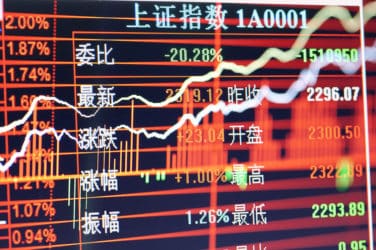The Monetary Authority of Singapore (MAS) today announced a S$125 million support package to sustain and strengthen capabilities in the financial services and FinTech sectors amid the current economic slump. The support package will help to position financial institutions (FIs) and FinTech firms for stronger growth when the threat of COVID-19 recedes and economic activity normalises.
Very smart to invest in digital infrastructure at this time as it can drive operational resiliency and ongoing economic productivity. @MAS_sg remains at the forefront of innovative thinking. https://t.co/dgSHmq088C
— Daniel Gorfine (@DGorfine) April 8, 2020
2 The support package, funded by the Financial Sector Development Fund, has three main components:
- supporting workforce training and manpower costs;
- strengthening digitalisation and operational resilience; and
- enhancing FinTech firms’ access to digital platforms and tools.
The support package will take effect today.
Supporting Workforce Training and Manpower Costs (S$90 million) (see Annex A)
3 MAS will launch a new Training Allowance Grant (TAG) to encourage FIs and FinTech firms to make use of the downtime in business activity, to train and deepen the capabilities of their employees. The TAG will also be available to support Singapore Citizens (SCs) and Permanent Residents (PRs) outside of the financial services and FinTech sectors.
4 The TAG will supplement the Jobs Support Scheme announced in the Resilience and Solidarity Budgets, by providing training allowances for completing training in courses accredited by the Institute of Banking and Finance (IBF) [1] at:
- S$10 per training hour for self-sponsored individuals; and
- S$15 per training hour for employees sponsored by FIs and FinTech firms [2] .
5 MAS and IBF will increase course fee subsidies for SCs and PRs attending relevant IBF courses to 90% (from the current range of 50% to 70%), and extend the subsidies to include employees of FinTech firms. The subsidies will be disbursed in advance to help alleviate any cash flow challenges that firms and individuals may face. More than 400 IBF-accredited courses are available on e-learning channels and plans are underway to expand such virtual offerings to meet training needs under the current climate of safe distancing.
6 MAS will double the salary support for FIs to hire SC fresh graduates or workers from other sectors and place them in talent development programmes under the Finance Associate Management Scheme (FAMS). FAMS is a talent development tool to help groom Singaporeans for future specialist and management roles in the financial services industry through structured programmes offered by FIs.
Strengthening Digitalisation and Operational Resilience (S$35 million) (see Annex B)
7 MAS will set up a new Digital Acceleration Grant (DAG) to support digitalisation in smaller FIs and FinTech firms [3] . The DAG will help these firms adopt digital solutions to strengthen operational resilience, process efficiency, risk management and customer service. This will include the adoption of digital tools and upgrading of systems that facilitate business continuity (e.g. document collaboration solutions and virtual conferencing systems).
8 The DAG scheme will have two tracks:
- the Institution Project track, which supports 80% of qualifying expenses for the adoption of digital solutions by smaller FIs and FinTech firms, up to a cap of S$120,000 per entity, over the duration of the scheme; and
- the Industry Pilot track, which supports collaborations among at least 3 smaller FIs to customise digital solutions for implementation within their institutions, by co-funding 80% of qualifying expenses, capped at S$100,000 per participating FI per project.
Enhancing FinTech Firms’ Access to Digital Platforms and Tools
9 MAS will provide all Singapore-based FinTech firms six months’ free access to API Exchange (APIX), an online global marketplace and sandbox for collaboration and sales. Through APIX, FinTech firms and FIs can integrate and test solutions via a cloud-based architecture.
10 MAS will work with the Singapore FinTech Association (SFA) to set up a new digital self-assessment framework for MAS’ Outsourcing and TRM Guidelines hosted on APIX. Completing the self-assessment will help FinTech firms provide a first-level assurance to FIs about the quality of their solutions.
A Tripartite Partnership
11 Ms Jacqueline Loh, Deputy Managing Director (Markets & Development), MAS, said, “We have significantly enhanced existing initiatives and introduced new schemes to help our FIs and FinTech firms not only navigate the current headwinds but at the same time build deeper competencies, skills, and networks, so that we can emerge stronger for the longer term. We encourage FIs, FinTech firms and financial sector professionals to actively tap on these opportunities.”
12 Mr Patrick Tay, Assistant Secretary-General, NTUC, said, “It is heartening to see MAS working closely with our tripartite partners to roll out targeted initiatives to help financial institutions, FinTech firms and workers through these challenging times, whilst at the same time, deepen competencies and skills. NTUC, together with our financial services unions and SFA, support this move and will work hand-in-glove with our tripartite partners to help our workers navigate this trying period so that we can emerge from this crisis a more robust, resilient, reputable, and relevant global financial and FinTech hub.”
13 Mr Ng Nam Sin, CEO of IBF, said, “The current slowdown in economic activity provides financial institutions a window to accelerate workforce transformation and upskill their staff. It is also an opportunity to leverage technology to impart learning. IBF will continue to work closely with industry partners to support the sector’s training needs through this period, and stands ready to help professionals with career advice and job placement opportunities.”
Source: MAS




